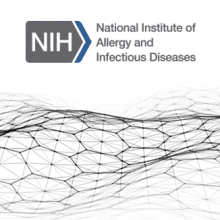Thursday, February 4, 2021
Deadline to Apply is Feb. 28

The National Institute of Allergy and Infectious Diseases (NIAID) is offering an Emerging Leaders in Data Science fellowship program to develop a cadre of talented data scientists who have a strong interest in applying their bioinformatics and data science expertise to advance research on infectious and immune-mediated diseases. The program is rotational in design with participants conducting 3-4-month, rotation-based projects throughout NIAID’s intramural and extramural programs. Fellowship appointments will be for one year with an option to renew for a second year and are for U.S. citizens who have received a master’s or doctoral degree in relevant fields within the last five years.
Participants in this program will receive training and hands-on-experience in applying and managing big data sets as well as bioinformatics strategies and tools to support projects in NIAID's extramural and intramural divisions. NIAID actively encourages fellows to participate in a variety of developmental assignments during their fellowship to broaden their perspectives on NIAID's research mission, strengthen managerial and technical competencies, develop a broad understanding of NIAID’s data needs from a variety of views, and further develop leadership abilities.
The deadline to apply to this program is 11:59 p.m. EST, Feb. 28, 2021.
To learn more about the NIAID Emerging Leaders in Data Science Fellowship Program, click here. Questions about this opportunity should be directed to [email protected] with reference code NIH-NIAID-DataScienceFellowship-2021 in the email.
About NIAID
NIAID’s core mission is to conduct and support research to understand, treat, prevent, and diagnose infectious diseases and immune-mediated disorders. NIAID’s basic and clinical research projects are generating large, diverse and complex data sets including genomics/omics data, clinical data, immune phenotyping assay data, imaging data, and other data sets. Similarly, the infectious and immune-mediated diseases research communities have become a data-intense enterprise. NIAID places a high priority on transforming these data into knowledge to more fully understand pathogen transmission and evolution, pathogen-host interactions, host immune response, and infectious and immune-mediated disease pathogenesis, as well as to develop new and improved diagnostics, therapeutics, and vaccines.


